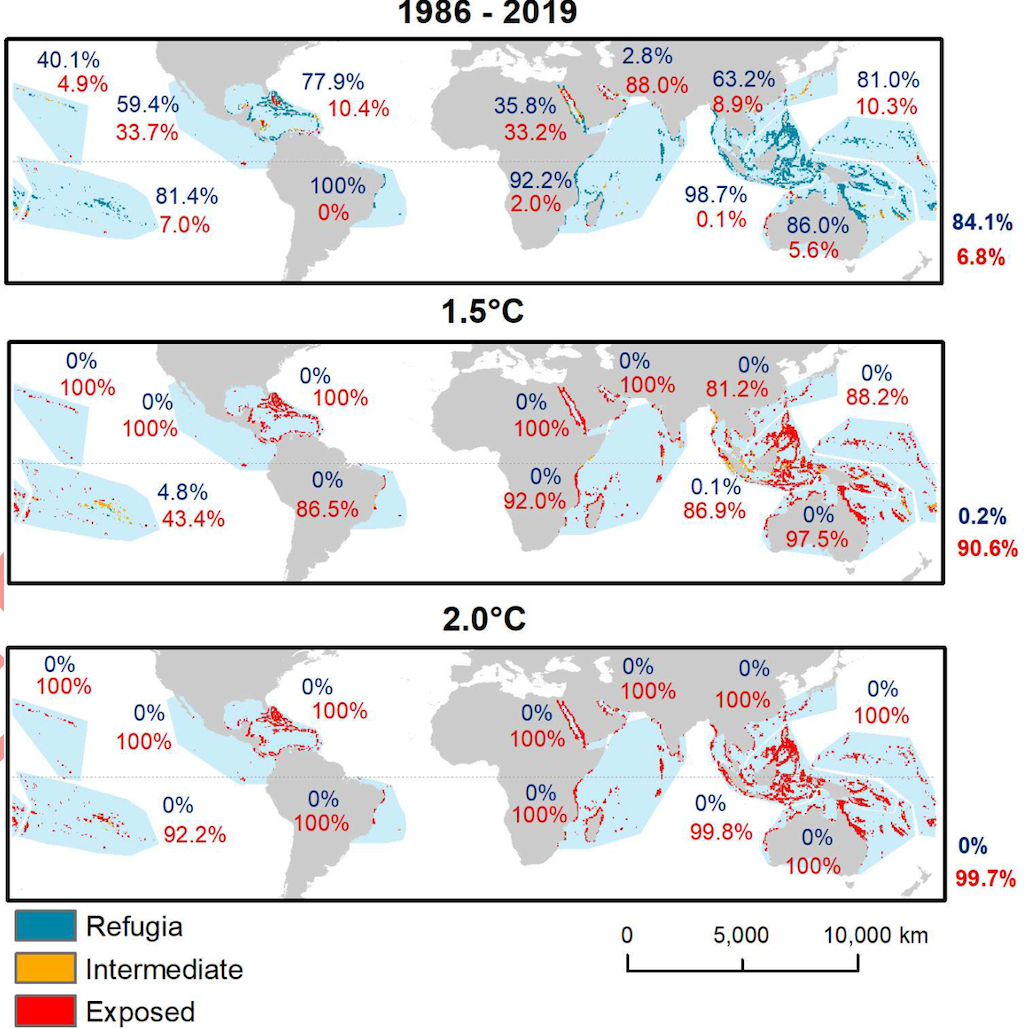
Coral reefs support a quarter of all marine life, including more than 4,000 species of fish. They also provide a source of income or food to half a billion people.
One way that climate change threatens coral reefs is by driving an increase in the frequency and severity of marine heatwaves. During prolonged periods of heat, reefs can experience mass coral bleaching. This occurs when coral releases the colourful algae that lives inside its tissue, leaving it a ghostly white. The algae acts as the primary source of food and, without it, coral slowly starves.
Coral reefs typically take at least 10 years to recover from episodes of mass bleaching.
A new study examines where on Earth coral reefs are likely to have enough time to recover from bleaching events. That is, where marine heatwaves currently take place every 10 years or more. The authors call these sites “thermal refugia”, noting that they “have been suggested as ‘slow lanes’ which may allow time for genetic adaptation to warmer conditions”.
The results show that, at present, 84% of reefs are located in regions where marine heatwaves are likely to occur every 10 years or more. However, at 1.5˚C of global warming, this drops to 0.2%, and at 2˚C, the study projects that all last refuges for coral reefs will cease to exist.